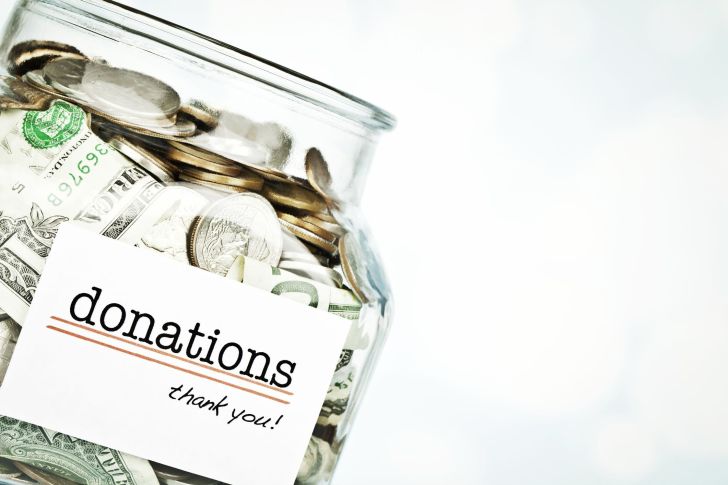How much is the government grant for self employed? The Self-Employment Income Support Scheme (SEISS) was available. The goal is to help self-employed individuals and those in partnerships who have been negatively affected by the COVID-19 pandemic.
The main goals of the scheme were to provide quick assistance to those who rely heavily on their self-employment income. Also, would have suffered financial losses due to the pandemic. It aimed to help self-employed individuals continue their business operations and reduce the risk of errors and fraudulent activities.
Throughout the duration of the scheme, a total of five grants were available. Those were between 13th May 2020 and 30th September 2021. As the situation evolved, the government adjusted the scheme’s rules to include new groups of individuals. Also, this ensure that the grants were available to those who needed them most as the pandemic continued.
Qualification of Self-Employed Grant
The SEISS was to provide support to self-employed individuals and members of partnerships. The UK government introduced it on 26th March 2020. It was a part of their efforts. The goal was to assist businesses and self-employed individuals during the COVID-19 outbreak. To be eligible for the scheme, self-employed individuals and partners had to meet certain criteria:
- They must have been actively trading in the tax year 2018-2019. Also, submit their Self Assessment tax return by 23rd April 2020 for that year.
- They must have continued trading in the tax year 2019-2020.
- They must have intended to keep trading in the tax year 2020-2021.
- Their business must have been adversely affected by the COVID-19 pandemic. For example: The individual was unable to work due to reasons such as shielding, self-isolation, being on sick leave because of COVID-19. Other than that, individual who was caring responsibilities related to COVID-19. The business had to scale down or temporarily cease operations due to issues. For example, interrupted supply chains, a decrease in customers or clients, or staff being unable to work.
The grant provided by the SEISS was not available to limited companies or those operating through a trust. To determine eligibility, HMRC initially examined the individual’s 2018 to 2019 Self Assessment tax return. The trading profits needed to fall between £0 and £50,000 and be at least equal to non-trading income. If the individual did not meet the eligibility criteria based on the 2018 to 2019 tax return, HMRC then assessed an average of the tax years 2016 to 2017, 2017 to 2018, and 2018 to 2019.
How Much is the Government Grant for Self-Employed
How much is the government grant for self employed? Under the scheme, eligible individuals could claim a taxable grant that amounted to 80% of their average trading profits over a three-month period.
The First Grant
The grant was out as a single payment and for a maximum cap of £7,500. The first grant was available for applications from 13th May 2020 and closed on 13th July 2020.
The Second Grant
The second grant opened for applications on 17th August 2020. It was a taxable grant worth 70% of the individual’s average trading profits over three months, with a cap of £6,570. To be eligible for the second grant, the individual’s business had to be adversely affected by COVID-19 on or after 14th July 2020. The application period for the second grant closed on 19th October 2020.
The Third Grant
Applications for the third grant opened on 30th November 2020. This grant was worth 80% of the individual’s average trading profits over three months, with a maximum cap of £7,500. The application period for the third grant closed on 29th January 2021.
To qualify for the third grant, an individual’s business needed to be affected by COVID-19 on or after 1st November 2020. They had to declare their intention to continue trading and meet one of the following conditions:
- Currently trading, but experiencing reduced activity, capacity, or demand due to COVID-19.
- Trading but temporarily unable to operate due to COVID-19.
- Reasonably believing that the reduced activity, capacity, or demand caused by COVID-19 during the period from 1st November 2020 to 29th January 2021 would significantly reduce their trading profits compared to normal circumstances.
The Fourth and Fifth Grants
The government announced during the Spring Budget 2021 that the SEISS would be available until September 2021. This policy was the fourth and final fifth grant. For both the fourth and fifth grants, the income criteria remained the same, and the individual had to:
- Involved in a trade that was adversely affected by COVID-19 during the qualifying period (1st February to 30th April 2021 for the fourth grant).
- Have been trading during the tax years 2019 to 2020 and 2020 to 2021.
- Have the intention to continue trading in the tax year 2021 to 2022.
Submit their Self Assessment tax return for the 2019 to 2020 tax year on or before 2nd March 2021.
On 22nd April 2021, applications for the fourth grant opened under the Self-Employment Income Support Scheme. The window to submit claims closed on 1st June 2021. Similar to previous grants, eligibility for the fourth grant was on an individual’s tax returns for either the 2019 to 2020 tax year. Or, an average of the consecutive tax years 2016 to 2017, 2017 to 2018, 2018 to 2019, and 2019 to 2020. This rule was for the individual didn’t meet the criteria based on the 2019 to 2020 alone.
With the inclusion of the 2019 to 2020 tax year for the first time, some individuals who were previously unable to claim a grant became eligible. These individuals included those who started trading as self-employed in 2019 to 2020. But they have no trading activity in the preceding tax years (2016 to 2017, 2017 to 2018, or 2018 to 2019). Also, for those who were previously ineligible based on their tax returns. It is because their trading profit was lower than their non-trading income.
How much is the government grant for self employed for the fourth scheme?
How much is the government grant for self employed for the fourth scheme? The fourth grant allowed recipients to receive a taxable sum equal to 80% of their average trading profits over a period of three months. This payment was available as a single installment with a maximum cap of £7,500.
On 29th July 2021, applications for the fifth grant of the Self-Employment Income Support Scheme opened. For the eligibility, an individual’s business had to be impacted by COVID-19 during the qualifying period from 1st May 2021 to 30th September 2021. The claims window for the fifth grant closed on 30th September 2021.
The fifth grant introduced two levels of support based on the reduction in an individual’s turnover between their reference year (either 2018 to 2019 or 2019 to 2020) and their pandemic year (a 12-month period starting between 1st April and 6th April 2021). The two levels of grant were as follows:
- For those whose turnover decreased by 30% or more, the grant was 80% of their average trading profits over a three-month period, capped at £7,500.
- For those whose turnover decreased by less than 30%, the grant was 30% of their average trading profits over a three-month period, capped at £2,850.
To qualify for the higher grant, the individual’s turnover had to have fallen by 30% or more between their reference year and the pandemic year. Newly self-employed individuals were not necessary to undergo the turnover test and could claim the higher grant.
Specific Arrangements
Here are the specific arrangements from SEISS 1 to SEISS 5:
SEISS 1 to 3
Throughout the progression of the SEISS scheme, there were adjustments to include two previously ineligible groups: new parents and reservists.
Self-employed parents who were taking care of a new child and either did not submit a tax return for the 2018 to 2019 period or had trading profits in 2018 to 2019 lower than their other income. This made them ineligible for the SEISS initially. However, they were available in the scheme for the second grant if they met all other eligibility criteria. They also could to make retroactive claims for the first grant. Subsequently, they remained eligible for later grants as long as they met the specific criteria for each respective grant.
In a notable extension, the Self-Employment Income Support Scheme (SEISS) existed and broadened. This program was available for self-employed army, navy, and air force reservists who were ineligible for assistance in the past due to their military service. This expansion aimed to provide support to a previously overlooked group of self-employed individuals within the armed forces reserves. Reservists who did not file a return for 2018 to 2019 or filed a return but had trading profits lower than their other income due to salary and compensation received for their service as a reservist were included.
Military reservists may calculate their eligibility and grant based on up to two years of Self Assessment tax returns covering 2016 to 2017 and 2017 to 2018. As long as they had at least 90 days of Ministry of Defence service in the tax year 2018 to 2019. Similar to new parents, this group became eligible for the second grant and could also make retroactive claims for the first grant and subsequent claims for later grants if they fulfilled all the criteria.
SEISS 4 to 5
Customers who were eligible as the new parents under the first three grants, included in the general population of eligible individuals. They were invited to submit claims for the subsequent grants of the Self-Employment Income Support Scheme (SEISS) if they met all the other eligibility criteria. This approach ensured that new parents were not excluded from accessing support, and they had the same opportunity as other eligible self-employed individuals to apply for financial assistance under the SEISS.
Reservists who met all the other requirements were in the group of people who could be eligible. The information about them was from the Ministry of Defence. This data allowed their inclusion, and they got extended invitations to submit claims for the Self-Employment Income Support Scheme (SEISS) along with the general population. By leveraging the existing information, the process aimed to ensure that eligible reservists could access the financial assistance provided by the SEISS on an equal basis with other eligible self-employed individuals.
Fourth and Fifth Grants
For the fourth and fifth grants of the Self-Employment Income Support Scheme (SEISS), similar arrangements implemented, but the calculations based on the tax year 2019 to 2020. This update allowed eligible self-employed individuals to receive financial assistance based on their trading profits during the specified period. This ensures consistency and fairness in the scheme’s application. It was necessary for customers to have filed their Self Assessment tax return for the 2019 to 2020 year by 2nd March 2021 to potentially be eligible for these grants.
For the fourth and fifth grants, guidance directed potentially eligible new parents to the Parental Verification Route, which could be accessed through the helpline, following the same process as for the first three grants. This involved a manual assessment process for this smaller group of self-identified individuals, allowing for a tailored eligibility assessment. If deemed eligible, they received a notification to proceed with the claim. This screening equality impact assessment pertains to the operational aspects of delivering the SEISS.
What Customers Must Do
As a result of the changes, eligible self-employed customers were able to make their claims for all five SEISS grants through the online portal or telephone service. HMRC directly communicated with potentially eligible customers through emails, SMS messages, or letters. Besides, there were additional efforts through social media, agent engagement, and stakeholder engagement to increase awareness of the scheme.
HMRC identified the potentially eligible population based on the information from their tax returns that indicated they met the eligibility criteria derived from tax return data. Claimants must confirm their eligibility at the time of making the claim. To do this, they must complete relevant screens in the online service or provide necessary details to HMRC helpline staff. Both methods included a declaration where the customer affirmed their eligibility for the grant.
Fifth Grant
For the fifth grant, customers needed to fulfill the criteria for the previous grants and complete a Financial Impact Declaration, as explained earlier. To get these grants, applicants must submit their turnover for the pandemic year, which covered the period from April 2020 to April 2021. Additionally, they had to provide their turnover for the reference year, which could be either the tax year 2019 to 2020 or 2018 to 2019.
These financial details were essential for the evaluation and determination of their eligibility under the scheme. (if more representative of their usual business performance) in the claims service. HMRC provided guidance to help claimants accurately enter this information, and agents were available to assist with the calculations if needed.
New parents who were not eligible for the SEISS had the option to contact HMRC. They could request a verification of their details and reassessment of their eligibility for the scheme. If there were any changes to their eligibility status, applicants had the option to apply through the digital service or by telephone. This flexibility allowed them to update their information and submit their applications accordingly to ensure they could receive the appropriate support from the scheme.
How to Access SEISS Service
Customers had two options to access the SEISS service. They could use the stand-alone digital service, accessed through their Government Gateway Credentials. Alternatively, they could contact an HMRC contact centre to confirm their eligibility. Or, they could go through the application process for the SEISS grants. It’s important to note that agents or third parties cannot make any claims. Furthermore, the claimant had to provide their bank details to facilitate the payment of the grant.
When to Claims
Self-employed individuals must submit their grant claims within specific claims windows. HMRC notified customers who were potentially eligible for a SEISS grant, providing them with a designated personal claim date. The claims windows for each grant were as follows:
- SEISS1: Claims open on 13th May 2020 and closed on 13th July 2020.
- SEISS2: Claims open on 17th August 2020 and closed on 19th October 2020.
- SEISS3: Claims open on 30th November 2020 and closed on 29th January 2021.
- SEISS4: Claims open on 22nd April 2021 and closed on 1st June 2021.
- SEISS5: Claims open on 29th July 2021 and closed on 30th September 2021.
Summary
In conclusion, the government grant for self-employed individuals through the Self-Employment Income Support Scheme (SEISS) provided financial support during the COVID-19 pandemic. The grant amounts varied depending on the specific grant and eligibility criteria. The grants were calculated as a percentage of the recipient’s average trading profits and were capped at different maximum amounts.
The initial grants ranged from 80% to 70% of three months’ average trading profits, while the later grants offered 80% or 30% of three months’ average trading profits. The maximum total grant for each individual may different. Generally, capped at £7,500. It is important to note that these grants were subject to taxation and recipients must report them as income on their tax returns.
Recipients should carefully review the eligibility criteria and claim deadlines for each grant. The SEISS grants helped alleviate some of the financial burden faced by self-employed individuals. This allows them to sustain their businesses and livelihoods during challenging times.
FAQ About SEISS Grants
Q: Are the grants taxable?
Yes, the SEISS grants are taxable. This means that they are subject to both Income Tax and Class 4 National Insurance Contributions. Recipients of the grants must report them as income on their Self Assessment tax returns and pay any applicable taxes on them.
Q: When do I need to report the SEISS grants as taxable income?
The grants from the Self-Employment Income Support Scheme (SEISS) are subject to taxation in the same tax year received. For the first three grants of the Self-Employment Income Support Scheme (SEISS), recipients must report the full amount received on their 2020/21 self-assessment tax return. There are specific boxes on the form for reporting the grants. Therefore, it is important to use those designated boxes. Do not report the grants in any other boxes on your tax return for the tax year 2019/20.
As for the fourth and fifth grants, they are taxable in the tax year 2021/22. You should report these grants on your 2021/22 self-assessment tax return when the time comes. Be sure to follow the appropriate reporting procedures as outlined by HMRC.
Q: If I have not correctly reported the grant(s) I received or have not reported them at all on my2020/2021 self-assessment tax return, then what happen?
HMRC will make an adjustment based on their records. This adjustment will ensure that the grant amounts is correct in your tax return.
The specific actions you need to take will depend on your individual circumstances. It is ideal to contact HMRC directly to discuss your situation and seek guidance. So, you know how to rectify any reporting errors or omissions related to the SEISS grants. They will be able to provide you with the necessary instructions and assistance. This ensures your tax return accurately reflects the grants you received.
Q: What must I do if I claimed the grant but I wasn’t eligible for it, or if I’ve got more from HMRC than I was entitled to?
If you claimed the grant but later realized that you were not actually eligible for it, or if you received more from HMRC, it is important to inform HMRC promptly. The timing for notifying HMRC depends on when you received the grant. If you received the grant before 22 July 2020, you must inform HMRC on or before 20 October 2020. If you received the grant on or after 22 July 2020, you must inform HMRC. Do this within 90 days of receiving the grant.
Failure to notify HMRC within the specified timeframes may result in penalties. To notify and repay some or all of the grant, HMRC has provided an online form. Once you have completed the form, you will be provided with bank details to make the repayment. It is advisable to print or save the page with the payment details for reference. If you are unable to use the online facility, you should contact HMRC for assistance.
Additionally, HMRC is contacting individuals who they believe may have been ineligible. So, they can claim the SEISS grant based on their tax return. This indicates that they ceased trading in either the tax year 2018/19 or 2019/20. If you receive an email or letter from HMRC requesting a review of your grant application, it is important to carefully follow the instructions provided. After that, respond to HMRC by the given deadline.
Q: What happens if I claimed the grant but I wasn’t actually eligible for it and I submitted my 2020/21 tax return by 28 February 2022 instead of 31 January 2022?
If you received SEISS grants that you were not entitled to between 6 April 2020 and 5 April 2021. Also, it is important to declare those overpayments on your 2020/21 tax return. If you submit your tax return by 28 February 2022, instead of the original deadline of 31 January 2022, you will not get any penalty. Unless there is evidence of deliberate failure to inform HMRC about the overpayment of a SEISS grant. It is crucial to refer to HMRC’s factsheet CC/FS11a. So, you have further details regarding penalties for failure to notify SEISS grant overpayments.
Q: I would like to voluntarily repay some or all of the grants I received, even though I was eligible to receive them when I made my claim. How can I do this?
If you wish to voluntarily repay some or all of the grant you received, you have the option to do so at any time. You can use HMRC’s online form, to initiate the repayment process. Once you have completed the form, you will be provided with the necessary bank details to make the repayment. It is advisable to print or save the page containing the payment information for your reference.
If you encounter any difficulties using the online facility, you should reach out to HMRC for assistance. They will be able to provide the necessary support to help you with the voluntary repayment process.
Q: How much is the government grant for self employed individuals?
The amount of the government grant for self employed individuals varies depending on the specific grant and eligibility criteria. How much is the government grant for self-imployed individuals, especially the first three grants? the taxable grant was worth up to 80% of three months’ average trading profits, capped at £7,500 in total. The fourth and fifth grants also provided a taxable grant. The amount based on the reduction in turnover between reference years and the pandemic year.
The fourth grant provided financial support based on two different tiers. For individuals who experienced a reduction in turnover of 30% or more, they were eligible to receive 80% of their average trading profits. It is only for over a period of three months, with a maximum cap of £7,500.
On the other hand, those with a turnover reduction of less than 30% received 30% of their average trading profits. This if for the same three-month period, capped at £2,850. The amount awarded depended on the extent of the turnover reduction, with higher reductions receiving more substantial assistance.
Q: Can I claim the government grant if I am a self-employed individual operating as a limited company or through a trust?
No, the government grant for self-employed individuals is not available to those operating as a limited company or through a trust. The scheme is to support self-employed individuals and members of partnerships. Different support options may be available for limited companies or those operating through a trust. For instance, the Coronavirus Job Retention Scheme or other business support programs. It is great to explore the available support options suitable for your business structure.
Q: Can I claim the government grant if I have other sources of income besides self-employment?
Yes, you may still be eligible to claim the government grant. Even if you have other sources of income besides self-employment. The grant is to support self-employed individuals whose self-employment activities have been adversely affected by COVID-19. As long as you meet the eligibility criteria, which include being impacted by the pandemic and deriving a significant portion of your income from self-employment, you can apply for the grant regardless of other sources of income.
Sources:




